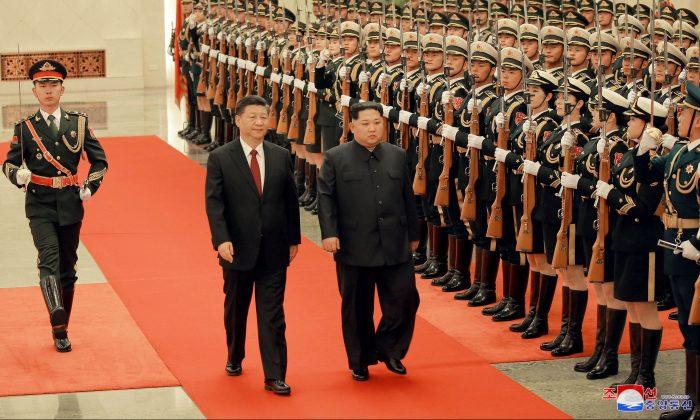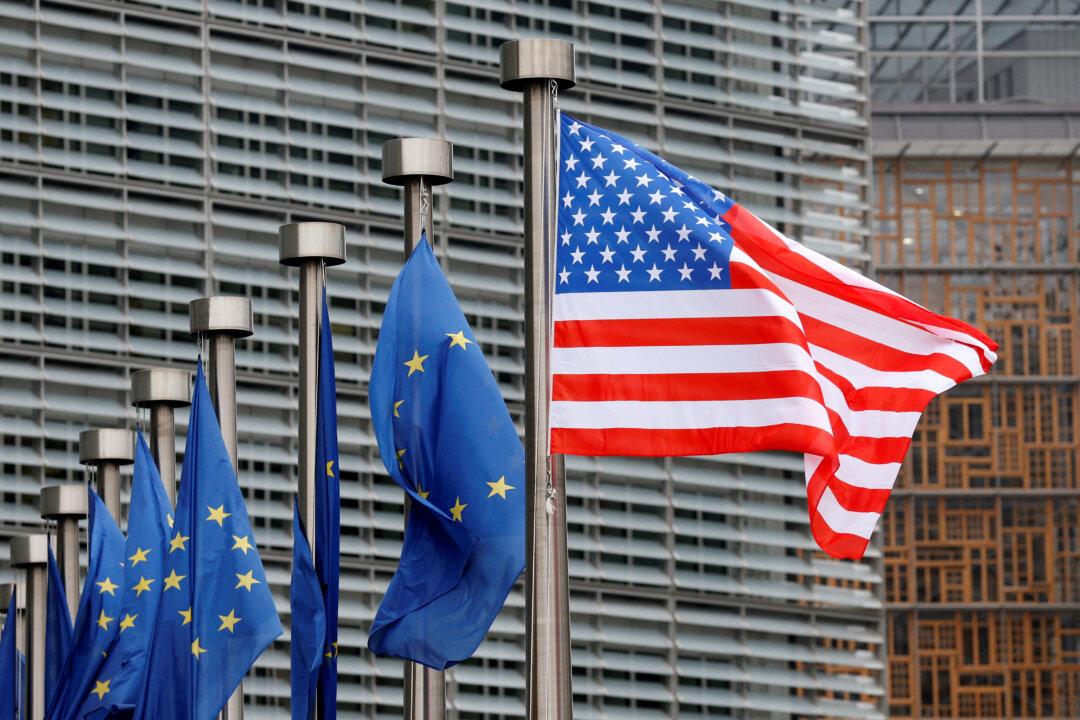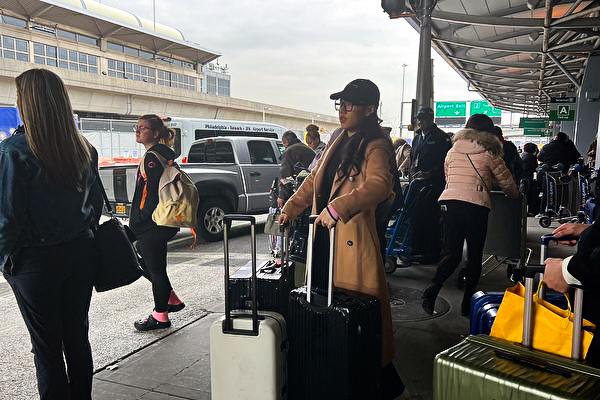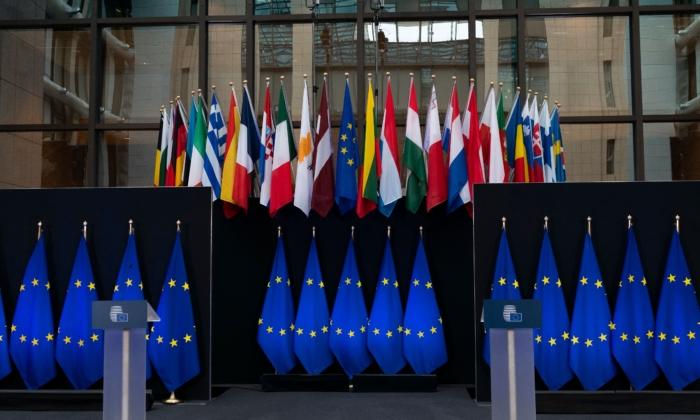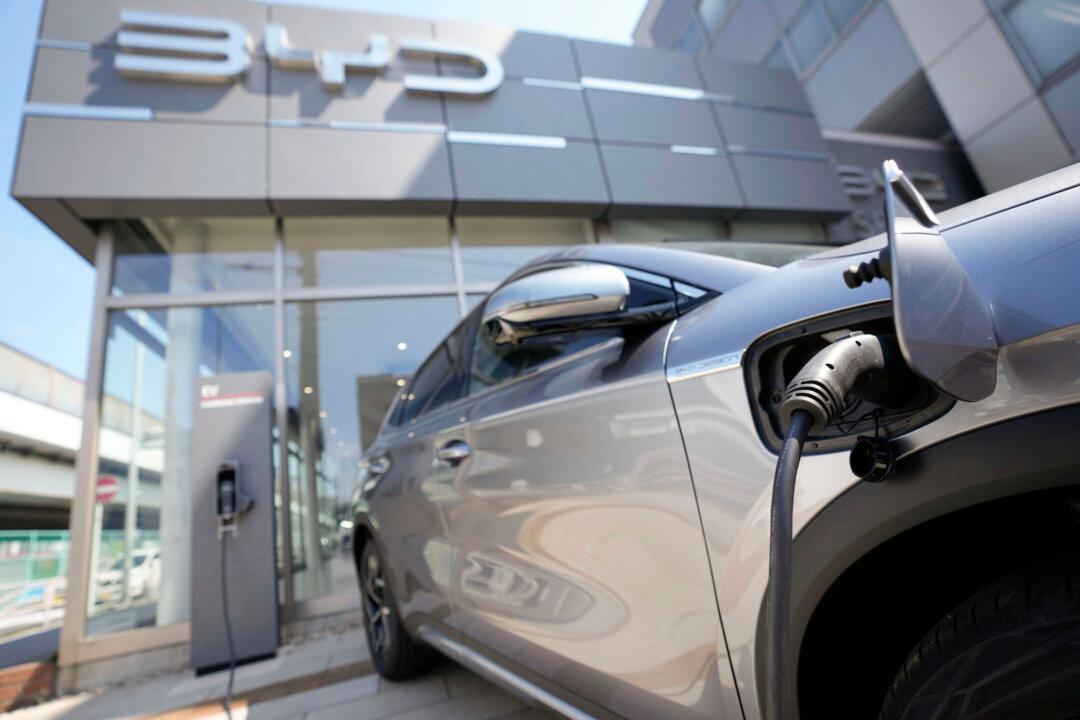The communist leaders of China and North Korea recently exchanged messages to reaffirm their historical alliance in fighting against “hostile forces,” according to Chinese and North Korean media. North Korea also fired missiles for a second time since President Joe Biden took office.
North Korea’s official media, the Korean Central News Agency (KCNA), reported on March 23 that North Korean leader Kim Jong Un and Chinese leader Xi Jinping had exchanged remarks the day before. Kim called for strengthening “unity and cooperation” with China in order to meet the challenges of “hostile forces,” the report said.
It is believed that the “hostile forces” that Kim mentioned pointed to the United States, according to Voice of America (VOA).
State-run media Xinhua reported that Xi and Kim exchanged messages to strengthen the alliance between the two regimes. Song Tao, head of the International Liaison Department of the CCP’s central government, was appointed by Xi to meet with North Korean Ambassador to China Lee Yong Nam on March 22 in Beijing, and conveyed a message to Kim.
Xi said in the message, “At present, the change of the century is coupled with the pandemic of the century, and the international and regional situations are evolving profoundly. The traditional friendship between China and North Korea is the common treasure of the two [communist] parties, two countries, and two peoples. China is willing to work with North Korea to maintain, consolidate, and develop China-DPRK relations.”
In conveying Kim’s message, Lee said that the relationship between North Korea and China is “envied by the world.” The North Korean side firmly believes that the friendly relations between the two sides will continue to develop, Xinhua reported.
The exchange between Xi and Kim occurred at the same time as the Biden administration moves to strengthen U.S. cooperation with the country’s Asian allies—South Korea and Japan—to contain China’s ruling Chinese Communist Party (CCP) and its ambition for global dominance, and to deal with the North Korean nuclear threat.
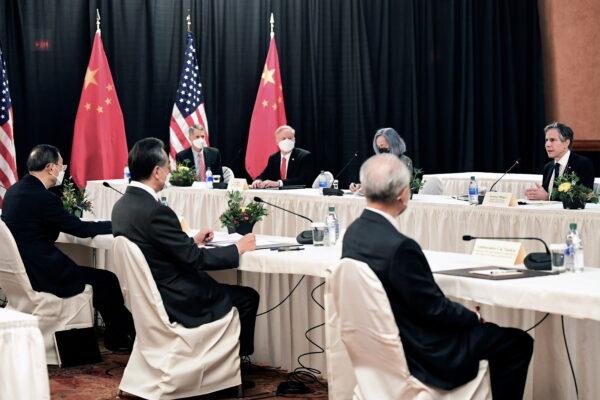
Last week, Secretary of State Antony Blinken and White House national security adviser Jake Sullivan held a two-day meeting in Anchorage, Alaska, hosting their Chinese counterparts Foreign Minister Wang Yi and top diplomat Yang Jiechi. Both sides clashed during their first in-person meeting.
Soon after, Yang Jiechi, via an interpreter, condemned the United States and spoke for about 16 minutes.
US Tensions With North Korea
On March 25, North Korea fired two ground-based ballistic missiles from the Hamju area of South Hamgyong province toward the sea, off North Korea’s east coast, according to CNN. It’s the second such launch in less than a week.U.S. Indo-Pacific Command spokesperson Capt. Mike Kafka said in a statement, the launch “highlights the threat that North Korea’s illicit weapons program poses to its neighbors and the international community. ... The U.S. commitment to the defense of the Republic of Korea and Japan remains ironclad.”
North Korea launched two short-range missiles on March 21, the first test since President Biden took office in January.
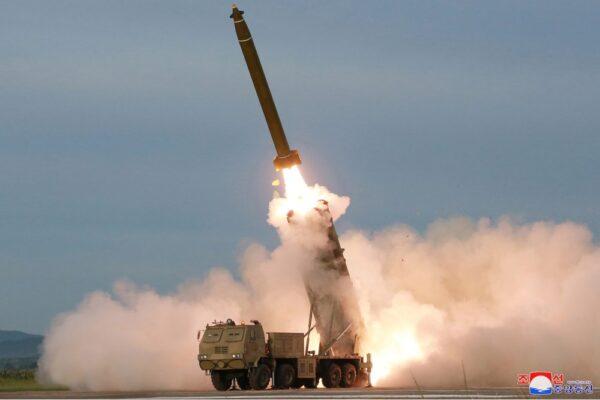
South Korea’s Joint Chiefs of Staff (JCS) confirmed that two cruise missiles were fired off North Korea’s west coast town of Onchon on Sunday morning into the Sea of Japan.
The missile test was conducted just days after Kim Yo Jong, the sister of Kim Jong Un, berated the United States and South Korea for conducting joint military exercises.
North Korea has ignored offers from the Biden administration to resume nuclear talks. Blinken has recently pressed China to use its “tremendous influence” to convince Pyongyang to denuclearize.
Nuclear talks between the United States and North Korea have stalled since the collapse of Kim’s second summit with Former President Donald Trump in February 2019, when the Americans refused to grant sanctions relief in exchange for Pyongyang’s dismantling of nuclear weapons.
Pyongyang blames Washington for its diplomatic isolation and economic difficulties, VOA reported.
The North Korean nuclear issue has been difficult to resolve over the years because Pyongyang and Beijing are secretly working together, according to an article by U.S.-based China affairs commentator Wang He.
Wang’s article, which was published in The Epoch Times, stated: “For the CCP, it’s very natural for them to support North Korea in developing nuclear weapons and missiles and to put on a show while collaborating behind the scenes with the Kim regime. It’s the CCP’s strategy to contain the United States.”
